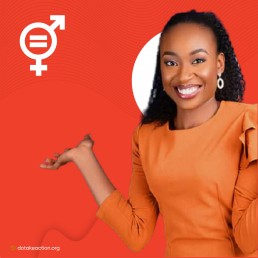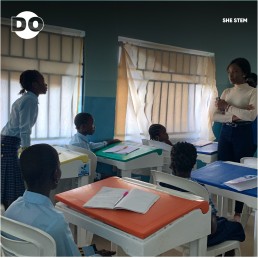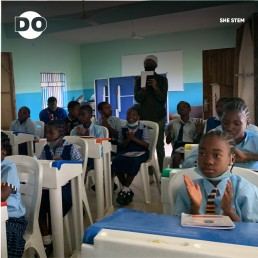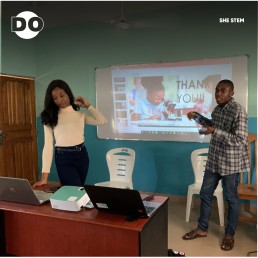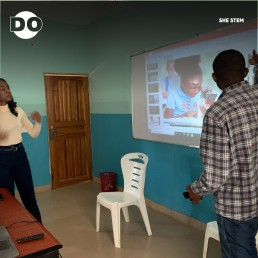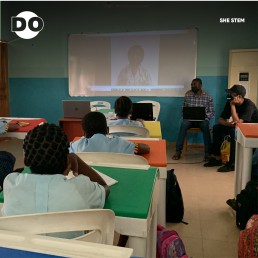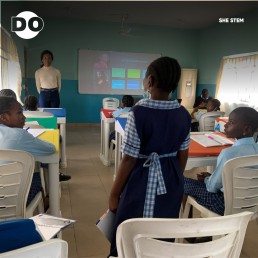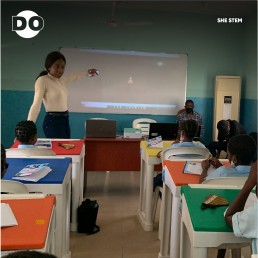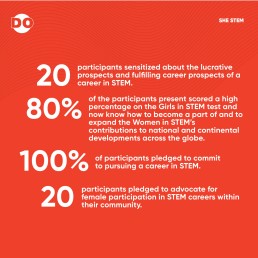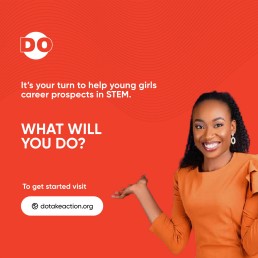THE NEED
Growing up, we read about scientists who made groundbreaking inventions in their time; Albert Einstein, Isaac Newton, Michael Faraday, Thomas Edison etc. Nobody talked about female inventors like Shirley Jackson, Maria Telkes, Ann Tsukamoto, even Maria Currie was mentioned in physics classes as an afterthought.
The trend has continued and has affected the representation of the female folk in science, technology, engineering and mathematics (STEM) education, and consequently in STEM careers. According to the UNESCO report Cracking the Code: Girls’ and women’s education in STEM, just 35% of STEM students in higher education are female, and there are gender inequalities within STEM disciplines.
In STEM, women make up only 28% of the workforce, and men greatly outnumber women studying in most Stem disciplines in college. Gender disparities are particularly pronounced in some of the future’s fastest-growing and highest-paying jobs, such as computer science and engineering.
Women make up about 80% of the healthcare workforce, but just about a third of doctors and only about 21% of healthcare executives and board members are female. Women are more represented in lower-paying areas, including home health care, nursing, and lower-paying specializations like paediatrics.
25-year-old Chidinma Kalu, a Grassroot Development Champion (GDC), saw this gap and decided to contribute her quota in closing it. Chidinma is a graduate of International Studies and Diplomacy from the University of Benin. As the Head of Operations GirlLEAD project – an organization that empowers young women and girls in the tech sector by providing quality education and training in STEM courses such as computer programming, digital marketing, graphic design, Data science, product mgt etc. – she has found a way to equate her passion with her work.
Chidinma wants to see every woman getting the necessary opportunity to maximize her full potential. As a result, she organized the She STEM project with DO-Take Action Team to encourage young girls to pursue a career in the STEM sector. She launched the project under the Skill-Up Climb-Up program, which addresses the challenges of the skills deficit, poverty, unemployment rates and unpreparedness of both African businesses and the teeming population of young people for the future of work and globalization.
The project was carried out at the Rhema Orphanage homes for the less privileged Pewai Lubge Abuja, and the details entailed the following;
- A presentation on the lucrative prospects and fulfilling career prospects of a career in STEM
- A film screening and group discussion workshop for a minimum of 20 young girls from Primary 3 – 5 OR JSS 1 – 3, SSS 1- 3 using short stories of role models to convey the lucrative prospects and fulfilling career prospects of a STEM career and most importantly encourage more young girls to pursue a career in STEM.
In the course of the project, a minimum of 20 participants were sensitized about the lucrative prospects and fulfilling career prospects of a STEM career. Eighty per cent of the participants present scored a high percentage on the Girls in STEM test and now know how to become a part of and expand the Women in STEM’s contributions to national and continental developments across the globe. Twenty participants pledged to advocate for female participation in STEM careers within their community and commit to pursuing a career in STEM.
Chidinma Kalu wants to see every woman access the necessary opportunities to attain their full potential. What change do you want to see? What are you doing about it?
If you enjoyed the story and would like to read more stories like this, sign up for our monthly newsletter to get notified of new stories.
Also, do well to follow our social media handles for more engaging and entertaining content on issues that affect YOU.
